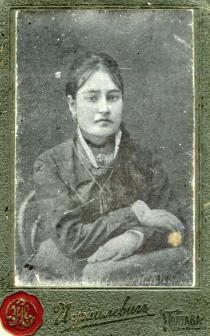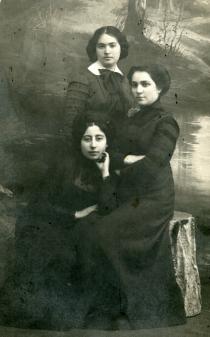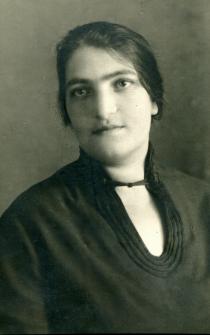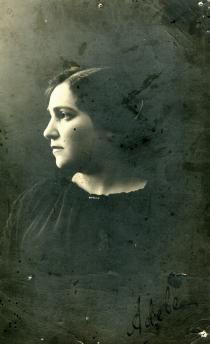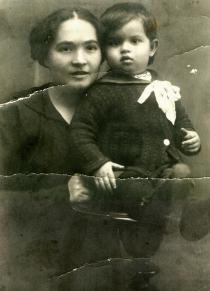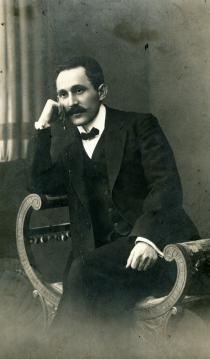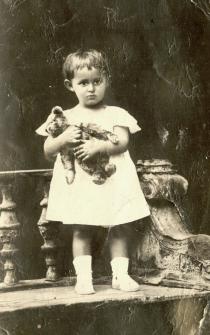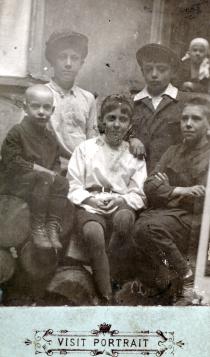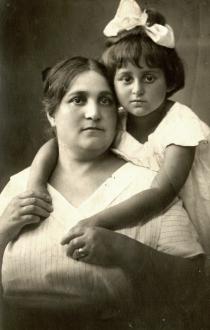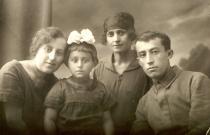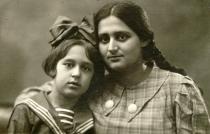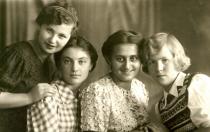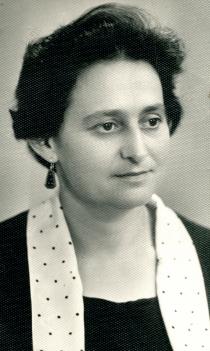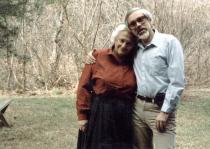This is me and my nephew Sima Rabichkin. The photo was taken in Chicago when I visited Sima.
I retired in 1975. I received a good pension of 132 rubles. I would have stayed at work longer, but I had to retire: Fania, my cousin Boris? wife, and Tania, my father's sister, were very ill and we had to look after them. Boris, Fania and I decided to exchange our apartments for a three-bedroom apartment in the center of the town. It was better to live together to look after Boris' parents and Aunt Tania. Aunt Sonia and Uncle Misha died in the late 1970s, Aunt Tania passed away in 1982. They were all buried in the Jewish section of the Baikovoye cemetery.
Looking back I realize that I lived my life looking after my relatives: I gave them injections, took them to hospitals and looked after them. I haven't got my own family. I never met the man that would have made me feel like changing my whole life. My relatives always came first in my life.
Boris? son Sima moved to the US in the 1970s. Boris, Fania and I visited him in 1990. It was my first trip abroad. We went to New York, Philadelphia, Chicago and Washington. We visited many museums. I am very happy I've been there, but during our visit Sima died in a hotel. Fania was grieving over him, and it was a great loss to Boris. Sima's daughter, Helen, moved to Israel shortly after Sima died. She almost convinced Fania, Boris and me to move there, too. We even had our documents processed, but at the last moment we changed our mind. To change life so dramatically at our age was just too much. Erik, Boris' son from his first marriage, also lives in Israel. I visited Israel in 1990. It's a wonderful country. I liked everything there. We traveled a lot, but I couldn't wait to go back home, to my town and friends.
Fania died of an infarction in 1992. Boris and I missed her a lot. Our friends supported us and often came to see us. Boris and I receive food packages at the synagogue twice a year. [The synagogue in Kiev supplies food to needy Jews at Rosh Hashanah and Pesach to support poorer people.] Once, when I was on my way to the synagogue to collect half a kilo of butter, I met an old non-Jewish woman. She asked me what I was going to get at the synagogue and when I told her she commented, 'How wonderful that you get support. There's nobody who thinks about us'. Frankly speaking, I felt ashamed of being privileged compared to many other old people who are less fortunate.

